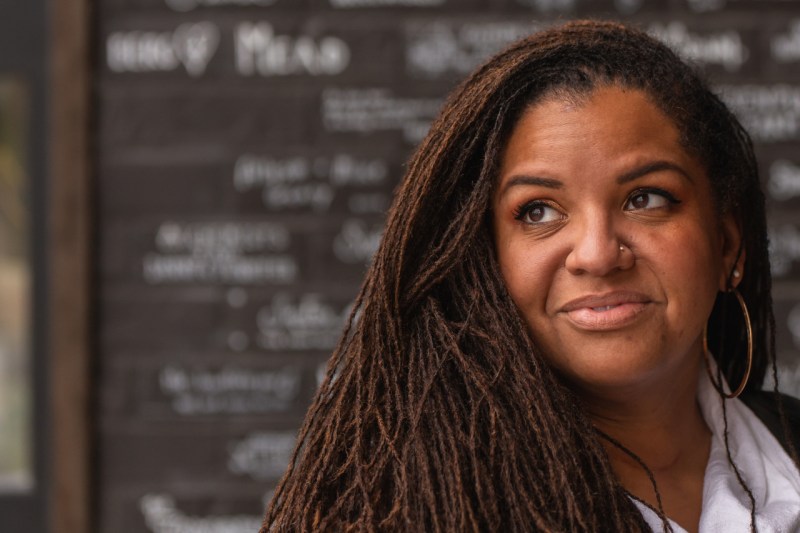Rich old white dudes have had a firm grasp on wine for far too long. Today, long-overdue change is starting to take effect, making for an industry that better represents wine drinkers and the community at large.
Increasingly, there are more Black voices being heard within wine. There are indigenous labels and people of color assuming roles as owners and head winemakers at prominent labels. But this is only part of a movement that needs more support and many more success stories.

Tiqeutte Bramlett is the president of Vidon Vineyard in Oregon’s famed Willamette Valley. She assumed the role last spring after many years in the industry, becoming the first Black woman in America to lead a winery. A year prior to joining Vidon, in 2020, Bramlett founded Our Legacy Harvested. The organization is committed to creating a more diverse and inclusive Oregon wine scene.
Bramlett was introduced to wine via her traveling parents, who enjoyed sipping while in California or while abroad in France. She’s also a lauded vocalist, having sung the Sydney Opera House. Legend has it she would occasionally have a little wine before a performance to settle the nerves.
Bramlett is no longer playing large venues, but she is reshaping a major facet of the drinks realm for the better. “At times, it can feel isolating as a person of color in the wine industry,” she says. “Being able to foster community and connection allows space to grow people dedicated to a career in the wine industry.”
Working with the Wine Community
The organization teams up with winery partners in the region who share the mission and create welcoming environments for all. Before the team up occurs, Our Legacy Harvested (OLH) evaluates the label, looking at their policies and practices to ensure their operations reflect their commitment to diversity. This involves diversity training and what Bramlett describes as an open dialogue around goals going forward.
As anybody in wine knows, the best way to learn the trade is through a harvest. It’s the apex of every year — the pivotal stretch when the grapes are ready and the winemaking goes down. OLH introduces new faces to this exciting time of year firsthand. The program brings interns to the Willamette Valley to work at partner wineries. The four-month program imparts all kinds of skills and wisdom as well as connects interns to industry pros, establishing the kind of community that can lead to long-term careers.
This year will mark the first vintage for these intrepid interns, delightfully dubbed the OLH Cru. Six BIPOC individuals will be selected and the internship is paid. Lodging is provided, along with mentorship, transportation, and industry coaching. It’s a big first step in evolving the industry, opening new cellar doors and changing the landscape. Many who work harvest go on to assume winemaker roles, marketing leads, and even winery president duties. With OLH, the Willamette Valley harvest will better reflect the community and empower people who might otherwise not get a chance.
“I am fortunate to be part of a team that not only supports my personal endeavors but recognizes that this is bigger than us,” she says. “Team Vidon has supported OLH by amplifying what the organization is about in the tasting room and providing an opportunity for our guests to donate, sponsor, or volunteer. From donations to volunteers, the community has shown up for us.”
What’s Next for Our Legacy Harvest?
Turns out, big things. Bramlett says a winery is in the works, a vertically integrated one that “educates, trains, and grows BIPOC into the Willamette Valley and the wine industry beyond,” she adds.
We can’t wait to raise a glass to that.


